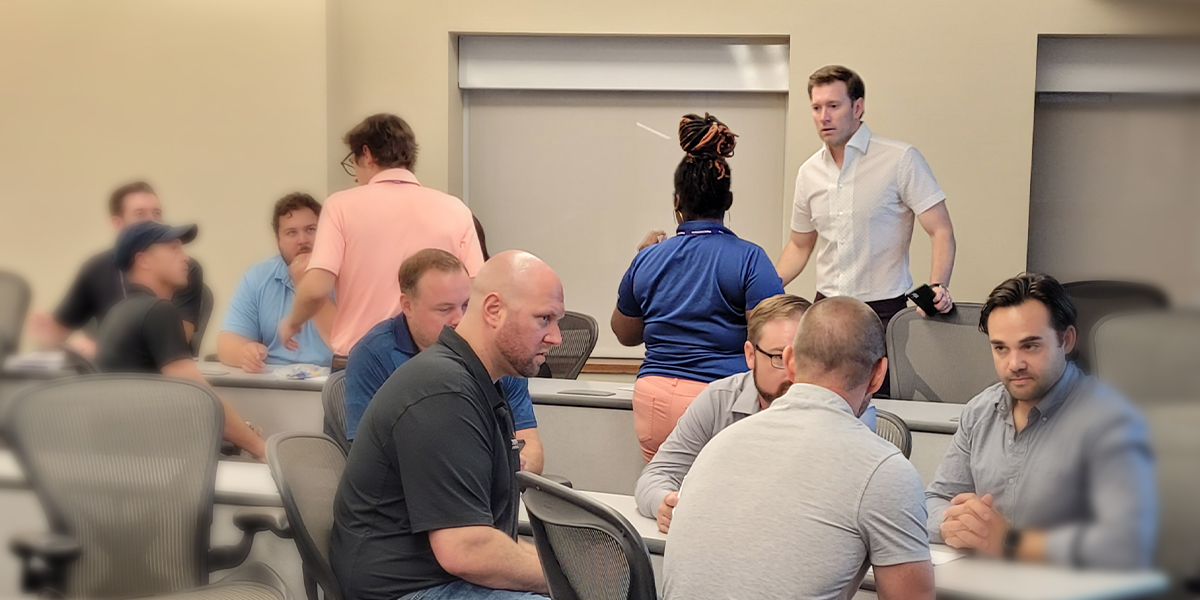The Future Executives Institute curriculum consists of three main areas: leadership, industry engagement and peer networking. Summer semesters start in June with virtual sessions and feature an in-person intensive session in August at the downtown Chicago campus of Northwestern University’s Kellogg School of Management. Winter semesters begin in January and include an in-person intensive session at the International Roofing Expo.® Each semester lasts between 16 and 19 weeks with weekly coursework required.


Networking and Social Activities
Connect with fellow FEI students, build your network and hear what your peers up to. FEI’s social events include bowling, comedy shows and other awesome activities.
Learn more
